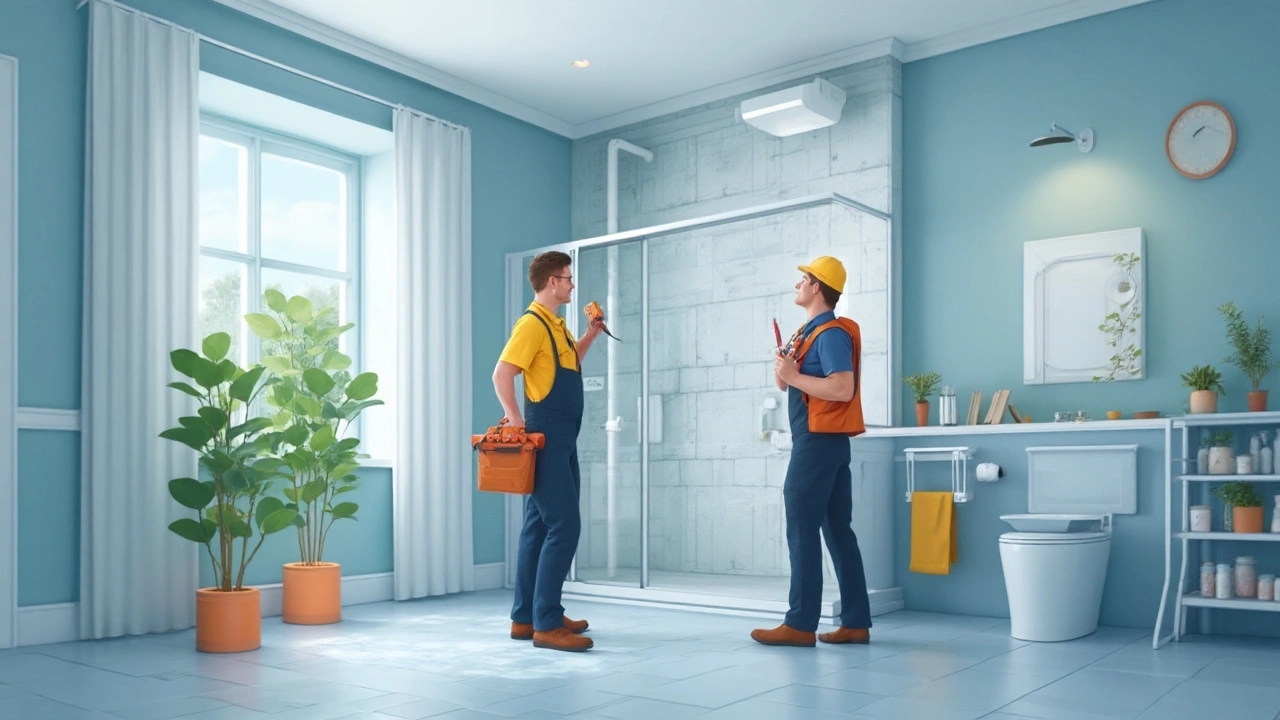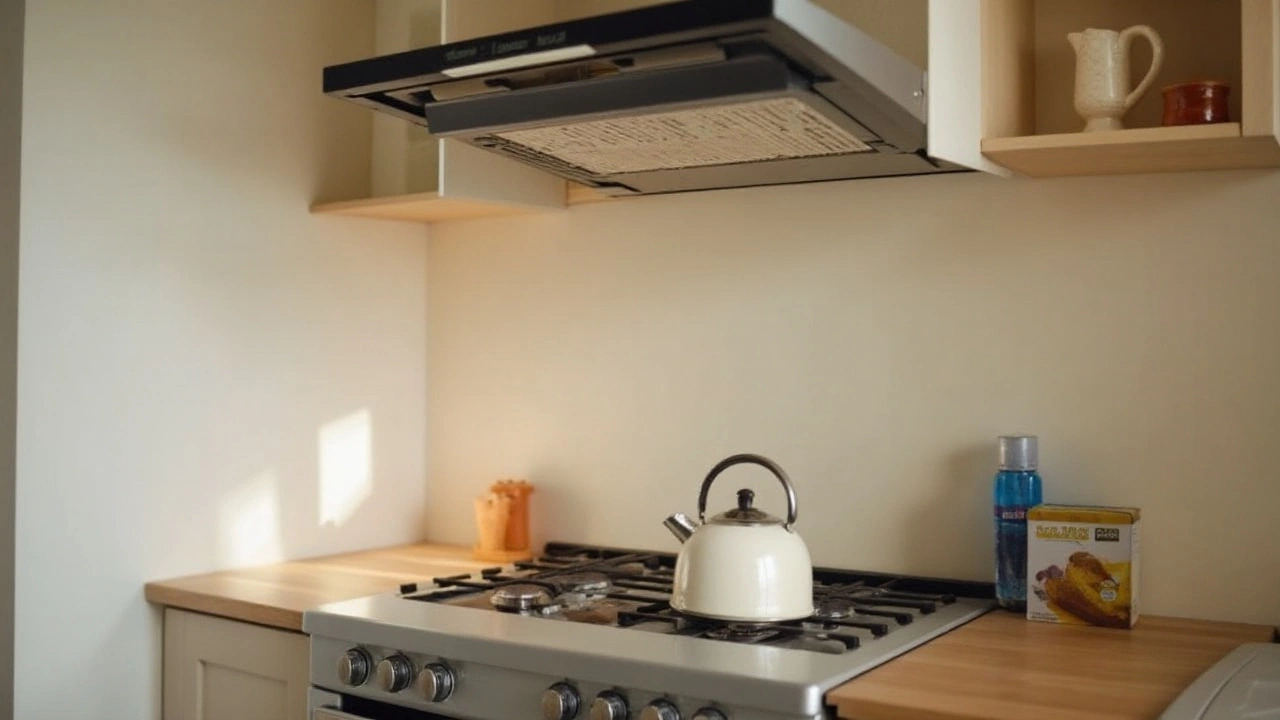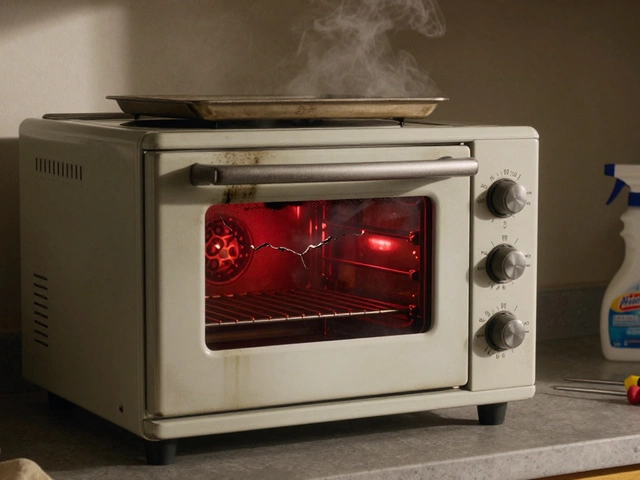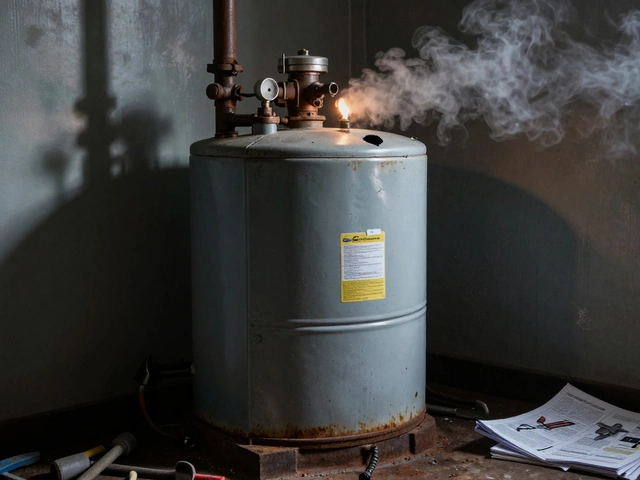Busted extractor fan? That tiny whirr that keeps your bathroom or kitchen clear of steam and smells can throw a wrench in your daily routine when it goes silent—or worse, starts sounding like it’s chewing up gravel. Most folks hit a wall fast: who do you even call to fix one of these things? Electrician? Plumber? Some mystical ‘fan guy’? Here’s a shocker: it’s not as straightforward as people think. And if you guess wrong, you’ll waste both time and cash.
The Trades You’ll Find on the Job
You’re not alone if you’ve found yourself Googling “what trade fixes extractor fans?” Picture this: your bathroom fan stalls, leaving your mirror coated in fog and the air thick with humidity after every shower. Or your kitchen extractor wheezes at full blast but still can’t conquer that post-curry cloud. Instinct kicks in—call an electrician, right? Not always.
Let’s break down the basics. Electricians are usually the main folks for the job. Most extractor fans in the UK and elsewhere are hardwired into your home’s electrical system, whether it’s a wall-mounted model, ceiling unit, or even those fancy in-line fans snaking through your loft. According to Electrical Safety First, replacing or wiring an extractor fan means working with mains electricity, so it’s not DIY territory unless you seriously know your stuff.
But hang on—sometimes, it’s not just the wires. Extractor fans are a hybrid animal: they blend electrical parts with moving mechanical bits, and they’re tied into your home’s ventilation system. If the actual venting (the ducting that shoves the air outside) is blocked or broken, or if there’s mold or damage you can’t see, you might need a ventilation specialist. Some heating and ventilation engineers or companies that do air conditioning also handle these issues, especially for commercial sites.
Occasionally, plumbers get called in, but that’s a stretch. Unless your fan is directly integrated with plumbing (like a combined fan and humidistat in high-moisture zones), they’re not your best bet. For 99% of homes, your tech order looks like this: extractor fan repair is best left to a qualified electrician for wiring, and a ventilation pro if ductwork is shot.
One under-discussed point: sometimes, the person you want is an appliance repair technician. Not as common, but some repair companies list fans alongside ovens and washing machines, especially in apartments or rented properties.
Common Extractor Fan Faults and What Causes Them
You wouldn’t believe how much punishment a cheap bathroom fan takes, sucking up steam every day. Over time, gunk builds up on the blades, bearings wear out, switches melt—gross and frustrating in equal measure. Kitchen extractors suffer even more, because they have to deal with grease and oils on top of everything else.
Let’s hit the main offenders:
- Dead or stuck motor: Most common killer. Overheating, age, and dust can fry the motor or seize it up completely.
- Dodgy wiring: Loose, chewed, or burned wires cause most surprises—often requires rewiring by an electrician.
- Faulty switches/timers: Loads of fans are wired to switches, or run on timers/humidity sensors, which eventually fail and need replacing.
- Clogged blades and ducting: Dust, fluff or kitchen grease build up, so you get a noisy, useless fan. This can also overwork the motor.
- Bad installation: Poorly fitted fans (ducts too long, no backdraft damper, underpowered units for big rooms) can burn out early.
Here’s a wild statistic: UK building surveys in 2024 showed around 38% of extractor fans in surveyed homes weren’t functioning as they should—mostly from lack of maintenance. This can mean damp, mold, and sky-high heating bills in winter. Ignoring a stuck fan doesn’t just mean foggy mirrors; it can trash plaster and woodwork, not to mention your health.

Who to Call—Making the Right Choice
So, do you call an electrician or someone else? It usually comes down to how your fan failed. If your fan isn’t spinning, isn’t turning off, or smells burnt, go straight to an electrician with experience in extractor fans. They’ll handle everything from fault-finding to fitting new units safely. If you suspect an electrical fire, never try to fix it yourself—turn off the circuit and get a pro asap.
But say the fan runs fine, yet the room stays damp or smoky. Time to eyeball your ventilation. That’s when you look for a “ventilation specialist” or “HVAC engineer.” These folks check ductwork, outside wall vents, and airflow rates. Some fan installers double as ventilation pros, so it’s smart to ask.
For fancy, integrated home systems—think central air, smart sensors, and whole-house extractors—you’ll want somebody who lists HVAC (Heating, Ventilation, and Air Conditioning) on their van. These specialists can troubleshoot the fan, check sensors, and make sure the system meets building standards.
It’s tempting to just go for the cheapest quote, but don’t. Always look for certified electricians—a NICEIC or NAPIT badge is golden in the UK. If your fan problem is tied to damp, mold, or repeated breakdowns, ask repair techs to recommend better units or spot causes for repeated failures. Don’t just swap in like-for-like if it keeps burning out.
| Problem | Who to Call | Pro Tip |
|---|---|---|
| Fan not spinning, burnt smell | Electrician | Turn off main power before inspection |
| Loud noise, vibrating | Electrician or Appliance Technician | Likely needs a part replaced |
| Poor airflow, damp build-up | Ventilation Specialist | Check ducting for blockages or breaks |
| Faulty switch/timer | Electrician | Ask about timer upgrades for efficiency |
| Bad smells linger | Ventilation Specialist/HVAC | Inspect for blocked vents |
Smart Fixes, Upgrade Tips, and Expert Opinions
Most extractor fans work in the background, but a smart upgrade can change your whole bathroom or cooking experience. Newer fans come with humidity sensors—no more guessing when to run the fan, it kicks in automatically when the air gets thick. Some kitchen fans use carbon filters, which are a breeze to swap once you know how (they’re snap-in, not messy at all).
If your old unit’s toast, don’t just chase the cheapest replacement. Higher-end fans from brands like Vent-Axia or Airflow are quiet, energy-efficient, and can outlast bargain-bin models by years. Look for fans with backdraft shutters—these flaps stop cold air sneaking in during winter, which keeps your heating bill in check.
Here’s a wild tip: regular cleaning makes a monster difference. Take your grill off every few months and scrub away the dust and muck; you’ll double your fan’s lifespan. Use a small, soft brush or a vacuum with a brush attachment—never spray water near the electrics.
One expert insight: Mick Johnson, Master Electrician and trainer, says,
"Most failures I see are avoidable—give your fan a quick clean every season, and when it stops working, call a real electrician. It's not worth risking a shock."
This checks out with consumer stats—more than 70% of “broken” fans just needed cleaned vents or a new fuse, not a new fan. Yet, buyers toss old fans instead of checking simple fixes, wasting cash and adding to landfill.
A few more tricks to keep in mind:
- Match fan size to room. Small fans choke in big, steamy bathrooms.
- Consider extract rates—measured in liters per second (L/s). Bathrooms need at least 15L/s, kitchens 30L/s or higher.
- If you live in an old house, check for asbestos in surroundings before replacing units from the ‘80s or before—get a professional.
- Crowded spaces or en-suites often benefit from silent or ultra-slim models—quieter, but just as powerful.
- Love your gadgets? Some smart extractor fans integrate with home assistants or apps for remote control and monitoring.
If your property is rented, push your landlord to use a proper tradesperson—not handymen who try to fudge the wiring. Bad repairs can void insurance if something goes wrong.
Last word? Don’t ignore the warning signs. A rattling or weak fan is usually trying to tell you something before it gives up completely. Hunt down a certified electrician for anything electrical, and pull in a ventilation expert if ducts or air quality don’t check out. Solve the real problem, not just the noise—your bathroom, kitchen, and wallet will thank you.





